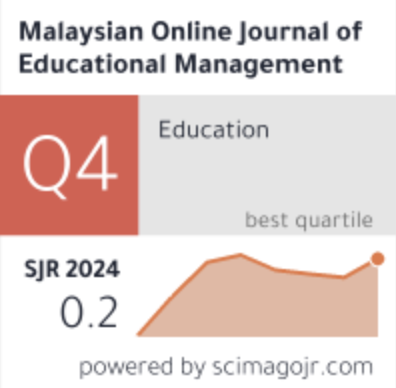VALIDATION OF AN INSTRUMENT FOR MEASURING INTEGRATED PRINCIPAL LEADERSHIP PRACTICES
Abstract
Integration of leadership styles has become a more common practice among school principals in the contemporary era. However, the psychometric properties of a scale to measure integrated leadership model in the context of schools are scarce. The purpose of this study is to validate a school leadership instrument to aid researchers in measuring integrated principal leadership practices (IPLP) in the context of Maldives. Psychometric characteristics of the instrument was evaluated using a sample of 376 teachers working in schools of Maldives. The validity of the instrument was investigated using exploratory factor analysis (EFA) and confirmatory factor analysis (CFA), whereby discriminant validity, convergent validity, construct validity, and reliability were assessed. The results of EFA determined two factors: i) transformational leadership, and ii) instructional leadership. Additionally, CFA confirmed the hypothesised two-factor model. CFA results of the two-factor model showed good model fit indicating construct validity. The factor loadings and average variance extracted revealed the evidence of convergent validity. The internal consistency reliability of the instrument appeared to be excellent based on composite reliability and Cronbach’s alpha values. The study findings confirmed the theoretical strength of an existing instrument for measuring integrated leadership practices of school leadership, combining both transformational and instructional leadership. The instrument can be used by researchers to measure integrated leadership practices of principals, while school leaders and policy makers can use the instrument to monitor hybrid leadership behaviour of principals.









